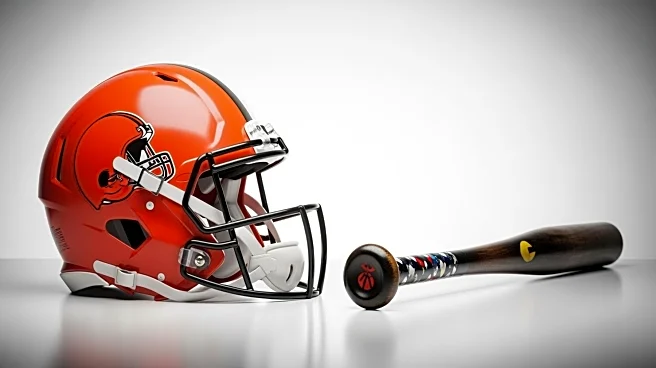What's Happening?
Cleveland Browns defensive tackle Shelby Harris has voiced concerns over Major League Baseball's financial structure, particularly its impact on small-market teams. Harris, who hails from Milwaukee, expressed
his frustration following the Milwaukee Brewers' recent playoff sweep by the Los Angeles Dodgers. The Dodgers, known for their substantial payroll, have acquired top players like Shohei Ohtani, Blake Snell, and Yoshinobu Yamamoto, contributing to their competitive edge. Unlike the NFL and NBA, MLB does not impose a salary cap, allowing teams with deeper pockets to spend significantly more on player acquisitions. The Dodgers' payroll stands at $350 million, in stark contrast to the Brewers' $121 million, highlighting the disparity in financial capabilities among teams.
Why It's Important?
The issue raised by Harris underscores a broader debate within professional sports regarding financial equity and competitive balance. In MLB, the absence of a salary cap allows wealthier teams to dominate the market, potentially stifling competition and disadvantaging smaller-market teams. This financial imbalance can lead to a less competitive league, where only a few teams consistently vie for championships. The situation raises questions about the long-term sustainability of such a model and its impact on fan engagement and team viability. If left unaddressed, this disparity could lead to increased calls for reform, potentially affecting league policies and the future of player contracts.
What's Next?
The ongoing discussion about financial fairness in MLB may prompt stakeholders to consider implementing measures to level the playing field. This could involve exploring the introduction of a salary cap or other financial regulations to ensure more equitable competition. The players' union and team owners may engage in negotiations to address these concerns, potentially leading to significant changes in league operations. Additionally, public and fan pressure could influence the direction of these discussions, as calls for a more balanced league grow louder.
Beyond the Headlines
The debate over MLB's financial structure also touches on ethical considerations regarding fairness and equality in sports. The current system may perpetuate a cycle where only affluent teams can afford top talent, limiting opportunities for smaller-market teams to succeed. This could have cultural implications, as sports are often seen as a reflection of societal values, including fairness and equal opportunity. Addressing these issues may require a reevaluation of the principles that govern professional sports and their alignment with broader societal expectations.









